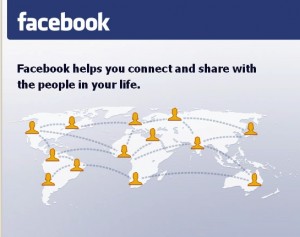College Admissions
College Admissions
Preparing for College
The Best College for You
What to Study
Applications
Education Options
Education Options
Private Universities
Public & State Universities
Community Colleges
Scholarships
Scholarships
African American Scholarships
Latino Scholarships
Native American Scholarships
Women Scholarships
College Grants
College Grants
Federal Grants
Merit Based Grants
Need Based Grants
Student Loans
Student Loans
Federal Student Loans
State Student Loans
No Co-signer Student Loans
Bad Credit Loans
Student Loan Consolidation
College Survival
College Survival
Financial Aid Tips
The Digital Student Blog
To enhance one’s college admissions chances, there once existed a longstanding belief that the more activities a student could list on their application the better. However, in recent years that myth has been clearly debunked.
An unending list of activities is now seen as potentially backfiring, being viewed primarily as a list constructed so as to impress college admissions officers. Instead, most admissions officers see such lists as demonstrating that a student has no real idea what they are truly interested in.
Instead, today’s teaching point for students is to become deeply involved in one or two interests. Spending time on certain activities demonstrates a passion for the activity. Moreover, a resume built on a record of the student’s involvement in that activity will go a long way towards helping admissions officers learn who you are, a critical component in the decision process.
Leadership Component
 In addition to extensive involvement in one or two activities, the general sentiment is that developing a leadership role within these endeavors is a key component of rounding out that resume. That idea is accurate, a leadership position within one of these activities can be very helpful during the admission selection process.
In addition to extensive involvement in one or two activities, the general sentiment is that developing a leadership role within these endeavors is a key component of rounding out that resume. That idea is accurate, a leadership position within one of these activities can be very helpful during the admission selection process.
But in true American-selling fashion, the importance of leadership credentials has led to a whole new industry, one that is formed around the idea of leadership training.
Diana Jean Schemo recently took a look at this industry for the New York Times. Her piece, “Congratulations. You Are Nominated. It’s an Honor. (It’s a Sales Pitch.)” clearly articulates that students need to be aware of a number of come-ons that are nothing more than sales pitches.
And they represent sales pitches of the worst kind: playing on a student’s inner emotions and their goals of higher education.
They come in the form of a letter that appears to be awarding the student recognition. As the title of the article suggests, these letters begin with congratulations, assuring the student they have been selected based on their record of achievement.
Specifically, they invite students to leadership seminars, offering them a chance of a “lifetime advantage” and “valuable addition” to his/her resume. The letter uses words like “elite,” “distinguished,” and “select.”
The power of positive feedback makes the recipient feel “unique and gifted” but then plies on that new push: the one that says students need to develop their leadership skills if they want to assure themselves the best chance at admissions.
The seminars are real and many students decide to attend. And all-in-all, participants who attend report they are satisfied with the experience. Many also later recommend friends.
Unfortunately, according to Schemo, these seminars appear to be nothing more than a marketing scam. The number of students who attend at the prices set by these companies allow these for-profits to make significant sums of money off the students.
In most cases, parents pay $2,000 to $3,000 for students to attend these multi-day programs that turn out not to be as elite as they portray themselves to be.
For one particular conference cited by Schemo solicitations “begin filling mailboxes, virtual and real, as soon as children reach middle school, and continue coming through college. In a variety of settings, from Congress to Caribbean beaches, programs advertise their ability to cultivate leaders.”
 The selection offers such statements about those selected as “the nation’s most highly acclaimed students” and “most promising young leaders of tomorrow.”
The selection offers such statements about those selected as “the nation’s most highly acclaimed students” and “most promising young leaders of tomorrow.”
There’s the National Student Leadership Conference with a program fee of $1,600 to $3,000 and the LeadAmerica’s Congressional Student Leadership Conference “which also advertises college credit” for the experience. Schemo insists that most universities will not accept it.
There’s the People to People Ambassador Programs which has had to apologize to families for sending invitations to deceased children and in one instance, a deceased family pet.
But the poster child according to Schemo is the Congressional Youth Leadership Council, a program that boasts more than half a million student attendees. The company, once a nonprofit, now is purely a business despite the fact that it retains its web “”.org” label.
Grossing $56 million, they returned a mere pittance in scholarships and grants to students (less than one million). Parents basically cover the costs while needy students are encouraged to fundraise their way to the conference.
Not the Real Deal
Ultimately, no experts report evidence that these programs have a lasting effect on the students who attend though parents often insist that their child comes back with greater self-confidence.
Meanwhile, Envision, the sponsor of the aforementioned Congressional Youth Leadership Council had 28 unresolved complaints as of April 8; they ranged from advertising practices to contract disputes to program quality.
 But what students most need to understand is that such seminars are relatively meaningless as resume builders, at least in the eyes of college admissions officers. They insist “a leadership conference is no more or less likely to enhance college applications than, say, soccer camp.”
But what students most need to understand is that such seminars are relatively meaningless as resume builders, at least in the eyes of college admissions officers. They insist “a leadership conference is no more or less likely to enhance college applications than, say, soccer camp.”
Real honors, say college admissions folks, generally do not come with a price tag. Schemo refers to Susan Garrity Ardizzoni, director of undergraduate admissions at Tufts, who notes that some students invited to these sessions are clearly not of the caliber she would call leaders.
“For us,” she says, “activities or essays are most meaningful for students where there’s an established track record or interest.”
Students should keep these factors in mind as they consider shelling out two to three thousand dollars for such an experience. These seminars are not as selective as their sponsors lead students to believe.
Students might find these programs enjoyable – in fact, they well should at $2,000-3,000 a pop. But as for giving students additional resume material for admissions, it appears that this money certainly could be better spent.
Are you one who struggles to maintain your focus while at work on a computer-related task? Someone who struggles with the drone of plowing through a mundane task, especially when there is a breadth of more interesting opportunities a simple mouse click away?
Fifteen, twenty minutes goes by and you perhaps feel the urge to check email or to see what updates are on your Facebook wall. Maybe it’s to check the stock ticker on one of those rare days where your investments are producing positive results or the lure of instant access to determine how your March Madness picks are doing.
As if all that was not bad enough, someone had to create this thing called Twitter.
Whatever your personal draw, the internet age has produced yet another issue for those who suffer from an ability to focus. In fact, the internet has created a new form of ADD, one that is technology-bred and ferociously difficult to control.
External Controls for the Moderately-Afflicted
If you tend to suffer from this terrible affliction, then you may want to try one of these external control mechanisms. Designed specifically for technology-bred or computer-fueled ADD, these control mechanisms take control of your computer and block access to those sites you find so irresistible.
![]() Freedom is one application that will disable your Apple computer’s ability to network for a set period of time (up to eight hours at a shot). This free application may not work well for everyone since it disables your network connection. You are free to write or program but of course once enabled there is no access to the net to download additional relevant materials.
Freedom is one application that will disable your Apple computer’s ability to network for a set period of time (up to eight hours at a shot). This free application may not work well for everyone since it disables your network connection. You are free to write or program but of course once enabled there is no access to the net to download additional relevant materials.
To turn off Freedom before the end of your self-imposed exile, you must fully reboot your computer. That is the only method to circumvent your preset time frame. Since rebooting represents a relatively significant hassle on most machines, Freedom is definitely a way to help keep tech-bred ADD in check.
An option to work on PC-based computers is Leechblock. This option is a Mozilla add on so you must be using Mozilla as your Internet browser.
LeechBlock may serve as a better productivity tool as instead of blocking all networking, you can specify as many as six different sets of sites to block for a specified length of time (see usage examples).
Time options include fixed intervals, say between 8 am and 4 pm, specified time limits, say no more than 10 minutes per hour, or any combination thereof.
An added feature is that LeechBlock also keeps track of the total amount of time you have spent browsing the sites you specified in any block set. More information and the latest version can be found here and the frequently asked questions appear here.
For the Hardened ADD Addicts
Both Freedom and LeechBlock can definitely help the tech-bred ADD culprit be more productive. But LeechBlock is a tad too easy to turn off in a moment of weakness and while Freedom is better, the weak among us still can be easily deterred.
 For those with a Mac and the need for a real hard and fast lock out, there is Self Control. This new application from Brooklyn-based developer and artist Steve Lambert is considered ruthless and a match for the most hardened addicts.
For those with a Mac and the need for a real hard and fast lock out, there is Self Control. This new application from Brooklyn-based developer and artist Steve Lambert is considered ruthless and a match for the most hardened addicts.
As with LeechBlock, with SelfControl you can determine which specific sites you want to block and the time you want to limit any access. But what makes this application so powerful is that you really need to be certain of your decision as once you hit the start button there is no turning back.
Because once the program is initiated the sites are off limits for the specified time. There is simply no way to turn it off, no shut down and reboot, nothing.
No way, that is, unless you are a programmer yourself.
External Controls for You?
Ultimately, if email is a constant distraction or you can’t resist twittering, then you just may need a little assistance to help you with your tech-bred ADD. If you are a Mac user you have more options for now, but there will no doubt be additional packages for the PC as we move forward.
In fact, we are wondering if there is a hidden message in the current Mac Self Control application – could it be that Mac folks are more afflicted by the ADD tech addiction than PC users?
Facebook is a splendid example as to how online social networks can enhance our ability to communicate with one another. Once created, other entrepreneurs immediately began working on programs that would allow Facebook to connect with other useful applications.
Today, there are a number of such options that can provide Facebook users access to information about colleges, the courses offered and the professors teaching those courses. One of the applications provides info from the famous US News and World Report college ratings publication while others seek to connect students within schools, with course information and professor ratings.
Any readers using these or other applications?
Gradzilla

Gradzilla is an application featuring some of the data compiled by US News and World Report. With Gradzilla, students can gain access to information on all aspects of selecting a college including information on majors, athletics, extracurricular activities, tuition, and student body size.
With Gradzilla, students can search for schools by name, location, major, tuition, size, setting, extracurricular activities and intercollegiate sports. The results can then be easily bookmarked for a second review later.
This Facebook interactive application allows you to research information on more than 5000 colleges. The application was created by Embark.com, a company that has “helped more than 15 million students research, organize, and apply to the schools of their choice.”
With College Planner, users can create their own personalized profile. In conjunction with the site’s advanced school finder, the profile can then generate suggested schools that meet your personal criteria and interests.
And all the while you do your research, you can share everything with other Facebook friends.
SkoolPool seeks to connect college applicants to one another and to current students at respective schools. The first primary objective is to help students find the right school.
 Through the site you can meet existing college students and theoretically get unbiased information from them about their school. Given that these individuals may attend your final school of choice, the site also allows you to connect with potential classmates.
Through the site you can meet existing college students and theoretically get unbiased information from them about their school. Given that these individuals may attend your final school of choice, the site also allows you to connect with potential classmates.
Courses is designed for both students and instructors. Using Facebook with the Courses application will allow students to share their schedules including the courses they are taking and the activities they are participating in. Students can then search for other classmates where they can share files and discuss specific classes.
In theory the application is also built with instructors and teaching assistants in mind. If students within the class can access one another through Courses and Facebooks, teachers can use the social networking application as part of the class structure. Announcements, syllabi and assignments can be distributed over the student network rather than one constructed by the colleges. Of course, the application can also form the basis for virtual office hours.
 Course Profiles is designed for those students taking courses through The Open University. Students may enter the OU course code, or portion of the title and Course Profiles will search the database and provide the full course full name.
Course Profiles is designed for those students taking courses through The Open University. Students may enter the OU course code, or portion of the title and Course Profiles will search the database and provide the full course full name.
By displaying the courses on the Facebook application that students have studied, they can then find people who have taken or are taking the same course creating a potential “study buddy” through the virtual connection. Students can suggest relevant resources and leave helpful details on the comments wall.
Offering access to nearly eight million opinions on more than one million instructors, Rate My Professors is a tool that allows students to share their opinion of their college instructors. With the Facebook application, students can browse through the ratings and comments on every one of those professors, doing so directly from the student’s personal Facebook profile page.
What makes the application so popular is that students can then learn what other students think of specific professors prior to enrolling in that instructor’s class. As the site notes, “Before you register for class find out which professor will inspire you, challenge you, or which will just give you the easy A.”
If you believe your college major should be based upon a specific career option, then one of the best job market fields to consider is the healthcare profession. At almost every level, from physician assistants to nurses to medical office personnel, openings are consistently available, even in times of tough job markets.
However, while the medical profession most often conjures up a career as a doctor, nurse or therapist, the fact is that healthcare now offers a wealth of new opportunities. The emergence of technology as a tool for the profession is creating a number of new work options.
One of those new paths centers upon the growing industry related to medical informatics, a field certain to explode with the recent government push towards an expanded electronic medical records system.
Technology and Medical Literacy Skills
 The complexity of the medical informatics field demands workers with a dual background. Not only is it essential to gain critical experience in the information technology (IT) sector, workers must also have a fundamental literacy in the healthcare profession.
The complexity of the medical informatics field demands workers with a dual background. Not only is it essential to gain critical experience in the information technology (IT) sector, workers must also have a fundamental literacy in the healthcare profession.
While at first glance the field may seem very mundane, career opportunities are actually quite varied and offer employees a chance to be on the cutting edge. Among the fields within the informatics sector include chief information officer, chief medical information officer, systems/applications analyst, and information technology department director.
Essentially positions will exist in three separate areas. While all jobs involve the management of health care data, the collection of such data could be used for clinical, financial, or analytical purposes.
Two Roads
One path to a career in informatics involves current healthcare workers obtaining a graduate certificate in the field. For example, UMass-Lowell offers a four-course graduate certificate in health informatics for current health care professionals.
This program focuses primarily on the IT side as potential students would likely come with extensive healthcare work experience. At Lowell, in addition to the focus on informatics, students could also choose to continue on to a master’s program in health management and policy.
One very enticing aspect of the Lowell program is its delivery structures. Using a blended format of classroom and online courses, the UMass-Lowell informatics option allows most students to complete their coursework even as they maintain full-time employment.
In addition to the certificate program option for current healthcare employees, some schools are now offering a program that starts students on a path that features both the IT and healthcare training. For example, Cape Cod Community College (CCCC) recently launched a pilot program in health care informatics designed to prepare students for entry-level positions in acute care or ambulatory care healthcare settings.
A second option is to consider a 2+2 program such as the Medical College of Georgia’s bachelor of science degree in health information administration. A student completes the first two years at any accredited college of choice then completes the final two years on the MCG campus.
Entrepreneurial Options
 Technology folks indicate there is far more to the informatics movement than the elimination of paper. Being able to work with and manage specific systems will demand certain levels of expertise and roles.
Technology folks indicate there is far more to the informatics movement than the elimination of paper. Being able to work with and manage specific systems will demand certain levels of expertise and roles.
At the same time, the field is so new that there will no doubt be opportunities for entrepreneurs, those who want to pursue a business that caters to wherever the informatics field goes. Options exist for companies that could deliver an entire system for a medical facility as well as smaller creations depending on the demands that come about for the medical records that accumulate.
Whatever the case, medical informatics offers a wealth of potential career options. Combining two distinct, high-demand fields, technology and healthcare, medical informatics could well be one of the surest career path options and therefore one of the most relevant majors to consider.